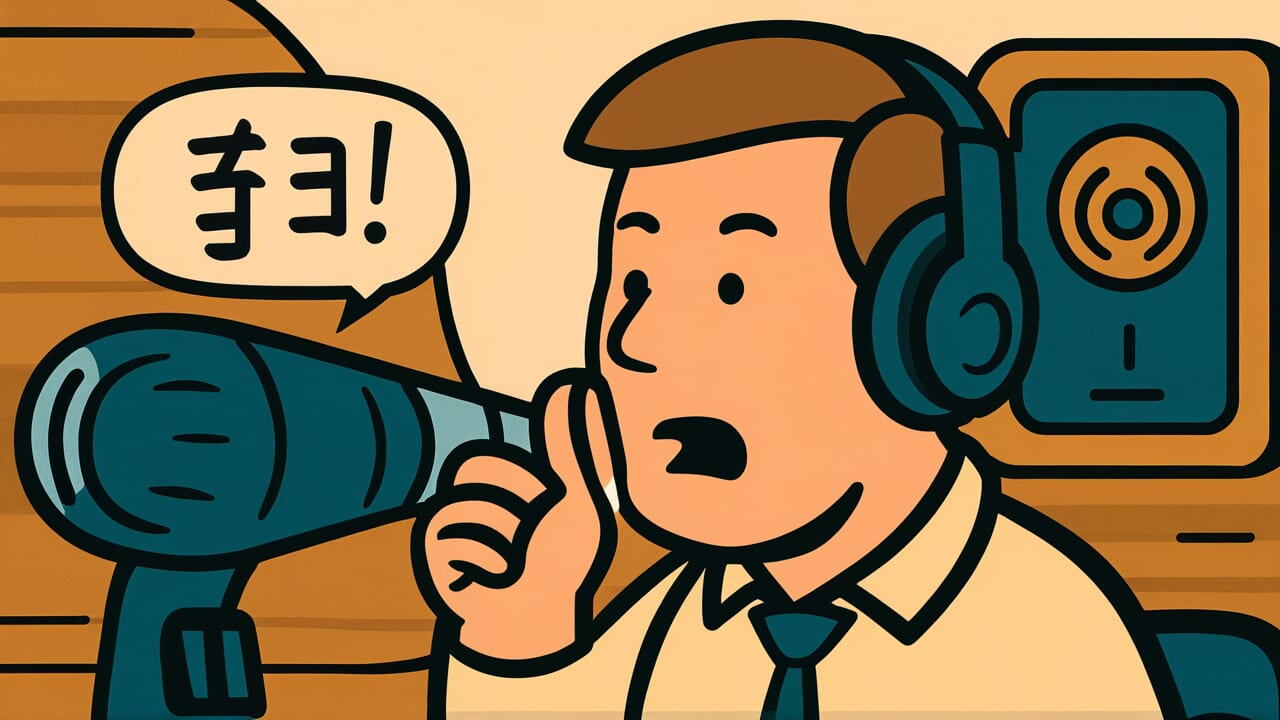How to Read “True words go against the ear”
Shigen wa mimi ni sakarau
Meaning of “True words go against the ear”
“True words go against the ear” means that correct words and advice feel unpleasant and hard to accept for the listener.
The more accurate the advice or truthful the words, the more they hurt to hear. People struggle to accept them honestly.
This proverb is used when someone receives harsh advice or when their faults are pointed out. Even if it feels uncomfortable at the moment, the more correct the words are, the more they stick in your mind.
Later, you might realize “those words were right.” It also applies when you’re the one giving advice. You use it when you must say something important, even knowing the other person might not want to hear it.
Even today, this proverb teaches us the importance of relationships where people say difficult things precisely because they truly care about each other.
Origin and Etymology
This proverb is believed to come from ancient Chinese philosophical thought. The term “shigen” (true words) appears frequently in Confucian classics.
It means words that express the highest truth or ultimate correctness. “Sakarau” means “to go against” and describes a state that is unpleasant to the ear and difficult to accept.
Chinese classics repeatedly present the idea that just as good medicine tastes bitter, correct advice is painful to hear. This way of thinking spread to Japan and became established as “True words go against the ear.”
The structure of the phrase shows strong influence from classical Chinese writing.
Humans have a tendency to gladly accept words that suit them but avoid harsh truths. However, words that truly benefit us often contain truths we don’t want to hear.
Our ancestors keenly understood this contradictory aspect of human psychology. This proverb has been passed down as a lesson that we should develop the ability to recognize truly valuable advice.
Usage Examples
- When I strictly pointed out my subordinate’s work performance, they became upset, but true words go against the ear, so I had to say it
- My parents’ nagging follows the principle that true words go against the ear – I resisted at the time, but now I understand they were right
Universal Wisdom
Humans have a strange quality. We listen to words that praise us and make us feel good. Yet we turn away from harsh words that truly benefit us. Why is this?
It’s because correct words point out our weaknesses and mistakes. Everyone wants to believe they’re right and affirm their own choices.
When someone says “that’s wrong,” it feels like our entire existence is being denied. Our defense mechanisms activate and we close the doors of our hearts.
However, this proverb has been passed down for hundreds of years because our ancestors deeply understood this human weakness. At the same time, they knew that painful words hold the most value.
People who truly care about you will tell you the truth, even at the risk of being disliked. Those who speak words you don’t want to hear might actually be the most trustworthy people in your life.
When you stand at life’s crossroads, which will you choose – sweet words or harsh words? That choice will greatly change your future.
When AI Hears This
When the human brain judges truth, it doesn’t actually ask “is this correct?” Instead, it asks “does this match patterns I already know?”
In information theory terms, our brains filter received information through existing beliefs. They classify high-compatibility information as “signal” and low-compatibility information as “noise.”
Here’s an interesting paradox. In Shannon’s information theory, information value is proportional to unpredictability. Truly valuable new information should deviate from existing patterns.
However, signal detection theory shows that human cognitive systems strongly tend to reject “signals too different from existing patterns” as false positives. It’s like spam filters mistakenly blocking important emails of an unfamiliar type.
The bigger problem is that emotion connects to this rejection response. The brain detects gaps between prediction and reality as “prediction error.” The larger the gap, the more discomfort it generates.
Advice that’s painful to hear literally “hurts” because, regardless of the information’s truth, the mismatch with existing self-models is so high that the brain treats it like a physical threat.
The irony that truth is hardest to accept could be called a structural flaw in human information processing systems.
Lessons for Today
This proverb teaches modern people to value uncomfortable words. Are you only seeking words that get “likes” on social media and opinions that earn sympathy?
When you surround yourself only with comfortable information, you lose opportunities to grow.
First, practice this: when you hear painful words, don’t immediately argue back. Stop and pause for a moment. Ask yourself why these words feel uncomfortable.
Behind that discomfort might hide a truth you don’t want to acknowledge.
Also, have the courage to speak true words to others. If you truly care about someone, telling them the truth without fearing dislike is also a form of love.
However, this isn’t about hurting them. It’s because you wish for their growth. Choose words that convey that feeling.
People who can accept painful words are already one step ahead of others. If you have someone around you who says harsh things, that person is a treasure.
Listening to that voice opens the door to a better future.



Comments